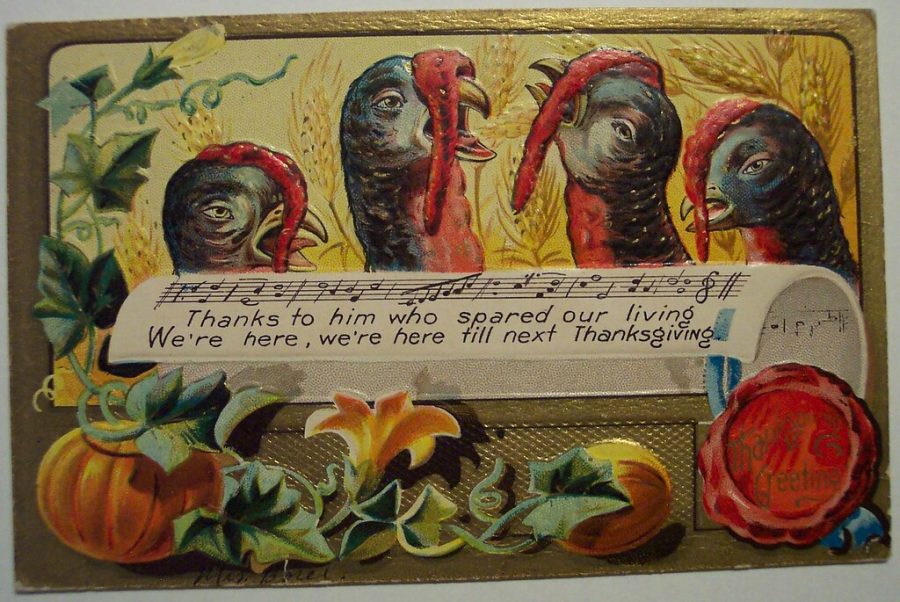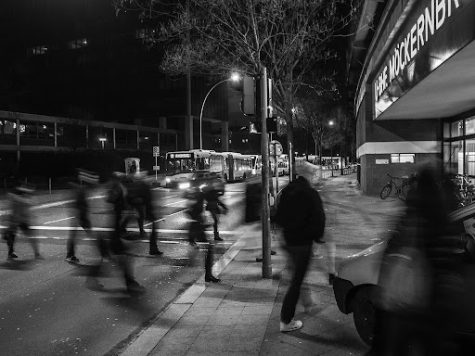To Turkey or Not To Turkey
How Your Thanksgiving Meal Could be Hurting the Environment
A vintage postcard expresses the Thanksgiving experience for turkeys during the holiday.
November 5, 2021
When thinking of Thanksgiving, one of the first things that comes to mind is the center of Thanksgiving meals across the United States, the turkey. Some would say that this entree is crucial to the entire experience of Thanksgiving day, but the environmental consequences of this gluttonous indulgence are detrimental.
With the way the world functions, there is always going to be one group against an opposing one, especially considering that the media has not always portrayed vegetarianism in the most positive light.
However, my intentions with this article are not to brainwash others into never touching an animal product ever again. It’s not even to convince you to become vegetarian. My biggest hope is that this article will just encourage the conscious thought about what we put into our bodies and the effects of this beyond ourselves.
On average, 46 million turkeys are eaten each Thanksgiving in the United States according to the University of Illinois.
To put that into perspective, in 2019, the United States Census Bureau recorded that California had a population of 39.51 million people. This means that more turkeys are killed every single year solely for Thanksgiving than the amount of people living in the most populated state in the U.S.
With the average turkey purchased during Thanksgiving being 15 pounds (University of Illinois) that means a total of 690 million pounds of turkey are eaten on this one holiday.
This doesn’t even account for the amount of ham or animal stocks that are also used in our meals.
All of these millions of pounds means huge impacts on the amount of fossil fuels released in order to process these birds, as the processing of them is not simple.
Before you can even raise the birds to become feasts, you must first cultivate crops to feed them. Cultivating these crops, like with many things in the food industry, produces fossil fuels, especially when transporting them across the U.S.
Once these crops are ingested in order to raise the animals, the animals are killed and it takes even more fossil fuels to then process the animals as well.
This means that if we eat more of the crops directly instead of using them as resources to raise animals, we could significantly reduce our impact on the environment.
Scientists estimate that the meat and sugar industry must reduce production by 50% to be able to aid the conservation of Earth in both preventing climate change and preserving biodiversity (Land Health Institute).
Obviously, the turkey industry does some bad, but this shouldn’t take away from the good that it does as well. It is able to employ around 20,000 people around the U.S (University of Illinois). If we completely stopped eating turkey, this would leave those employees without jobs.
It is a complex problem that we are nowhere near finding a solution to, but adding more plant-based meals to your diet, or even trying them during Thanksgiving, can help somewhat.
In addition, trying new foods with family and friends can create fun experiences and memories that allow you to connect with each other.
So, whether you choose to enjoy a turkey this Thanksgiving or try a plant-based alternative, understand where your food came from and how that can affect our world.













